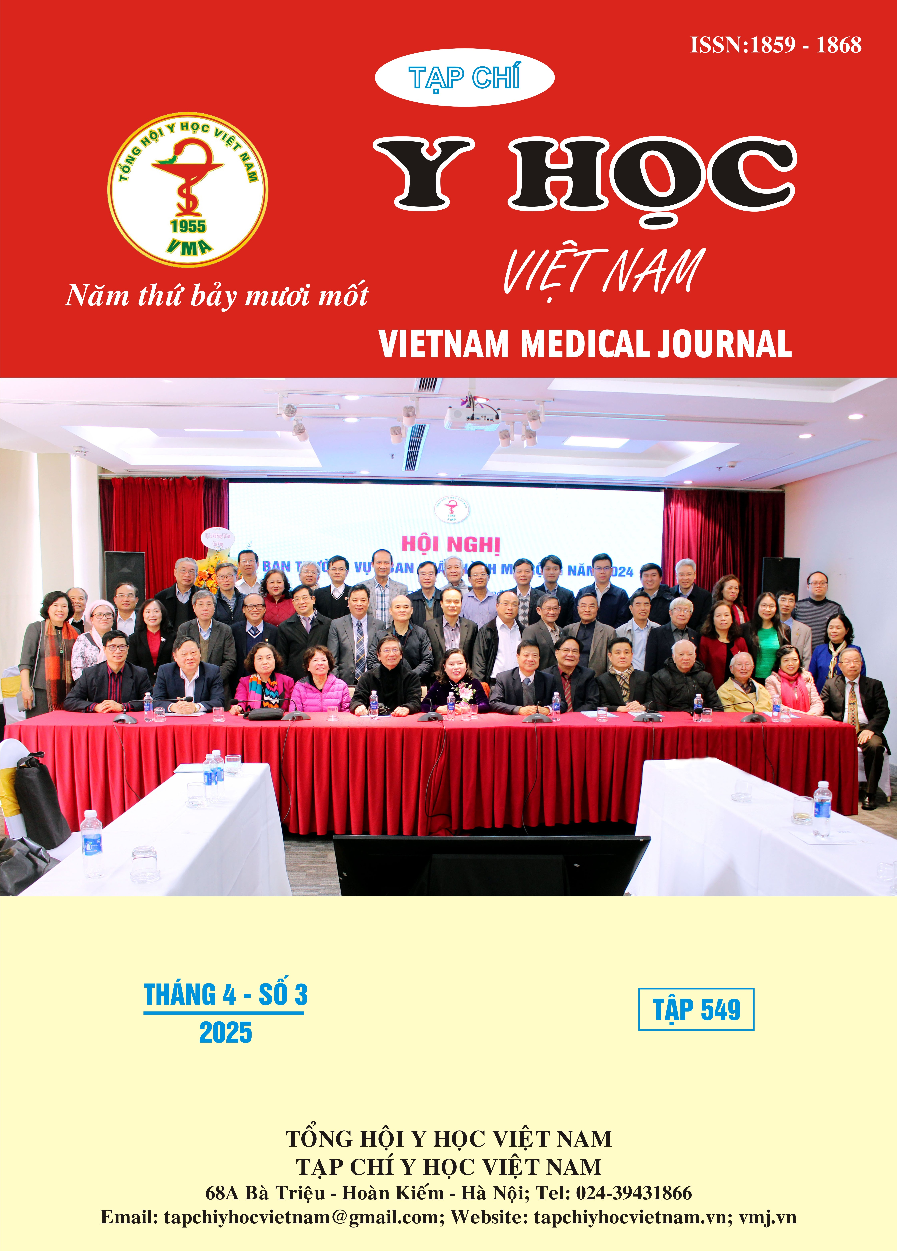EFFICACY OF SORAFENIB THERAPY IN ADVANCED HEPATOCELLULAR CARCINOMA
Main Article Content
Abstract
Background: Sorafenib - an oral multikinase inhibitor that inhibits tumor-cell proliferation and tumor angiogenesis - has been shown in phase III studies to prolong overall survival. Until recently, sorafenib is considered the standard treatment for patients with advanced hepatocellular carcinoma (HCC). Objective: Evaluate the overall survival (OS), progression-free survival (PFS), disease control rate (DCR), and toxicity of sorafenib in advanced HCC. Patients and method: Retrospective descriptive study from 61 patients with advanced HCC to receive sorafenib at Military Hospital 175 from January 2022 to December 2024. Results: Median OS was 4 months [95% CI: 3.2–6.8 months]. Child-Pugh A patients had a median survival rate significantly longer than Child-Pugh B patients: 12 months vs. 6 months (p=0.003). Median PFS was 4 months [95% CI: 2.6–5.4 months], DCR was 49.2%. The most common toxicity was hand-foot syndrome (41%), of which grade 3–4 accounted for 11.5%. Conclusion: Sorafenib in the treatment of advanced HCC has a favorable disease control rate and common toxicities were grade 1-2. However, there are no significant overall survival and progression-free survival improvement. Patients with Child-Pugh B liver function had poorer OS than those with Child-Pugh A function.
Article Details
Keywords
Sorafenib, hepatocellular carcinoma, HCC, advanced stage
References
2. Llovet JM, Burroughs A, Bruix J. Hepatocellular carcinoma. Lancet. 2003;362 (9399):1907-17.
3. Llovet JM, Ricci S, Mazzaferro V, Hilgard P, Gane E, Blanc JF, et al. Sorafenib in advanced hepatocellular carcinoma. N Engl J Med. 2008;359(4):378-90.
4. Beck C. SORAFENIB (Nexavar®) FOR 1ST LINE HCC: Northern Cancer Alliance; 2018 [Available from: https://www.northerncanceralliance.nhs. uk/wp-content/uploads/2018/11/Sorafenib-for-HCC-protocol-CRP10-UGI010-v1.2.pdf].
5. Therasse P, Arbuck SG, Eisenhauer EA, Wanders J, Kaplan RS, Rubinstein L, et al. New guidelines to evaluate the response to treatment in solid tumors. European Organization for Research and Treatment of Cancer, National Cancer Institute of the United States, National Cancer Institute of Canada. J Natl Cancer Inst. 2000;92(3):205-16.
6. Freites-Martinez A, Santana N, Arias-Santiago S, Viera A. Using the Common Terminology Criteria for Adverse Events (CTCAE - Version 5.0) to Evaluate the Severity of Adverse Events of Anticancer Therapies. Actas Dermosifiliogr (Engl Ed). 2021;112(1):90-2.
7. Cheng AL, Kang YK, Chen Z, Tsao CJ, Qin S, Kim JS, et al. Efficacy and safety of sorafenib in patients in the Asia-Pacific region with advanced hepatocellular carcinoma: a phase III randomised, double-blind, placebo-controlled trial. Lancet Oncol. 2009;10(1):25-34.


